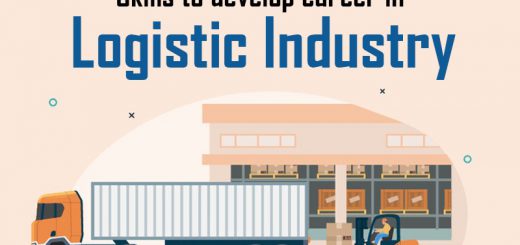Logistics Providers, Embrace IoT for First-Mover Advantage
The logistics industry plays a crucial role in the global economy, ensuring the efficient movement of goods from manufacturers to consumers. In recent years, logistics providers have faced increasing pressure to enhance their operations, reduce costs, and improve customer experiences. The emergence of the Internet of Things (IoT) has opened up new opportunities for logistics companies to achieve these goals and gain a first-mover advantage in the market. By leveraging IoT technologies, logistics providers can optimize their supply chain, increase visibility, and streamline operations like never before. In this article, we will explore how embracing IoT can benefit logistics providers and position them as industry leaders.
Advantages of IOT Logistics Providers
Real-Time Visibility and Asset Tracking
One of the most significant advantages of IoT logistics providers is real-time visibility and asset tracking. IoT devices, such as GPS trackers and sensors, can be attached to vehicles, containers, and packages to monitor their location, temperature, humidity, and other critical parameters. This real-time data empowers logistics companies to track shipments, identify potential delays, and proactively address any issues that may arise during transit. By leveraging accurate data, logistics providers enhance customer service and optimize goods movement, resulting in heightened satisfaction
Predictive Maintenance and Reduced Downtime
In the logistics industry, unexpected equipment failures and downtime can be costly and disruptive. IoT sensors in vehicles collect real-time data on parameters like engine performance, fuel consumption, and tire pressure. Remote monitoring enhances diagnostics and maintenance efficiency This data enables logistics providers to proactively address issues, preventing costly breakdowns through predictive maintenance strategies.
Warehouse Optimization and Inventory Management
Furthermore, IoT sensors can be deployed to monitor the movement of goods within the warehouse, providing valuable insights into stock levels, storage conditions, and order fulfillment status. This data enables logistics providers to optimize warehouse layouts, reduce excess inventory, and improve order accuracy. By automating inventory management through IoT, logistics companies can streamline operations, reduce human errors, and ensure timely deliveries
Enhanced Security and Loss Prevention
Security is a critical concern in the logistics industry, particularly when dealing with high-value goods and sensitive information. IoT-based security solutions, such as smart surveillance cameras and access control systems, can help logistics providers enhance security and prevent theft or unauthorized access. Additionally, IoT devices can trigger real-time alerts in the event of security breaches, enabling immediate responses to potential threats. With enhanced security measures, logistics providers can build trust with customers and partners, positioning themselves as reliable and secure service providers.
Optimized Route Planning and Fuel Efficiency
IoT-powered telematics can revolutionize route planning and fuel efficiency for logistics providers. Real-time data on traffic conditions, weather, and road closures can be integrated with IoT devices. This not only reduces transportation time but also contributes to fuel cost savings and reduces carbon emissions.
Improved Customer Experience and Personalization
In today’s competitive market, providing a personalized and seamless customer experience is crucial for business success. IoT technologies enable logistics providers to offer personalised services to their customers. For instance, customers can receive real-time updates on their estimated delivery times, as well as delays through tracking systems. This level of transparency and communication enhances the customer experience and builds long-term loyalty.
Data-Driven Decision Making and Business Intelligence
Harnessing the vast amount of data generated by IoT enables data-driven decision-making and informs business intelligence. By analyzing IoT-generated data, logistics providers can identify patterns, spot inefficiencies, and make informed decisions to optimize their operations further. This data-driven approach allows logistics companies to stay ahead of the competition, identify emerging trends, and adapt their strategies.
Conclusion
Embracing IoT technologies is no longer an option but a necessity for logistics providers aiming to gain a first-mover advantage in the industry. IoT offers a multitude of benefits, including real-time visibility, predictive maintenance, and improved customer experience. IoT transforms logistics: Streamline operations, track shipments, and maintain competitiveness through real-time data and analytics.
Logistics providers that adopt IoT early on will have a significant edge over their competitors, as they can establish themselves as innovative and efficient service providers. With IoT as a powerful ally, logistics companies can effectively navigate the challenges of an increasingly complex supply chain, deliver exceptional customer experiences, and drive growth and success in the ever-evolving logistics industry




Recent Comments